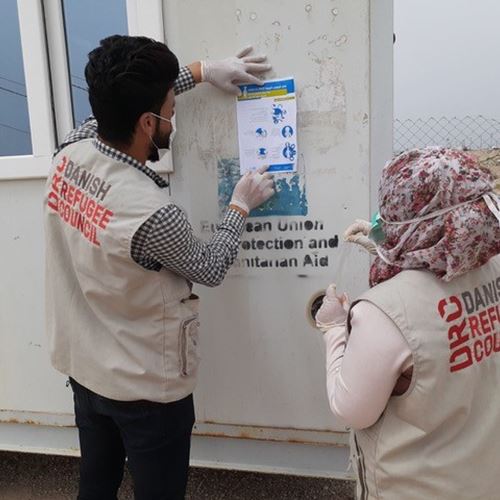News
New DRC report on COVID-19 Response Details the Challenges of an Extraordinary Difficult Year for Refugees and Displaced Persons
As we mark one year since WHO declared COVID-19 a worldwide pandemic, DRC has published “Global COVID-19 Response Final Report” analysing how the virus and related impacts had severe effects on already very vulnerable refugees and displaced persons.

2020 will be a year remembered by most as the COVID-19 pandemic and government-imposed restrictions worldwide meant significant disruption to the global economy, to social life and to everyone’s daily lives. However, a new report by DRC based on evidence from surveys of more than 12,000 displacement-affected persons across DRC’s country operations show how vulnerable or marginalised people were disproportionately affected.
While refugees and displaced people face circumstances that leave them vulnerable to initial health risks related to COVID-19, data showed how its secondary impacts was a particularly hard blow to this population. Data from Jordan, Iraq, Lebanon, Niger, and Nigeria shows that refugee/IDP households were more prone to losing their employment opportunities, had fewer savings, and were at higher risk of eviction compared to host communities. The impact of COVID-19 on livelihoods is nothing less than disastrous, as access to employment and thereby ability to pay rent and buy food severely decreased. In Jordan, Lebanon, Iraq and Somalia, survey data from early in the crisis showed a drop of more than 50 percentage points among refugees and displaced persons having a member of the family employed.
